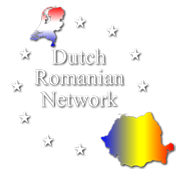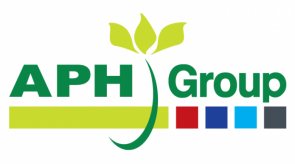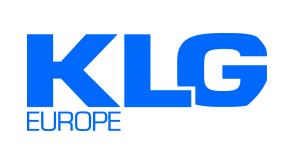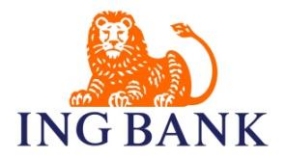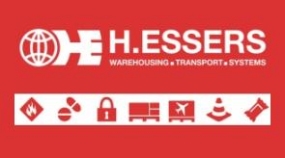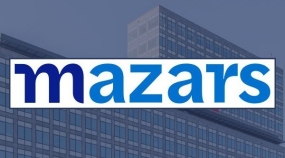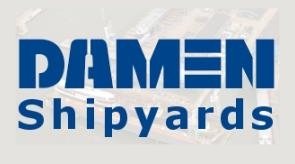Newsletter April 2025

DRN – Fast forward
From change to improvement
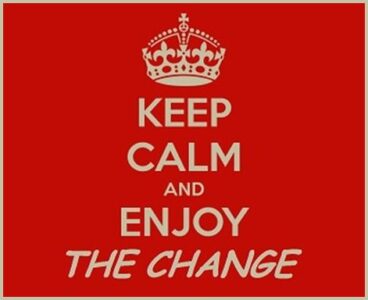 This implies that experience experts in particular must be given space, and we count a substantial portion of our members among them. And it is our job to give these experts by experience the space to share their knowledge with others, it is an important aspect of being a member of a network like the DRN. It also means that we will pay more individual attention to our members. Another side effect of membership is ultimately we think we can then answer every entrepreneur’s question “What is in it for me” ! It was also the starting point when the DRN was founded in 2006: For entrepreneurs by entrepreneurs.
This implies that experience experts in particular must be given space, and we count a substantial portion of our members among them. And it is our job to give these experts by experience the space to share their knowledge with others, it is an important aspect of being a member of a network like the DRN. It also means that we will pay more individual attention to our members. Another side effect of membership is ultimately we think we can then answer every entrepreneur’s question “What is in it for me” ! It was also the starting point when the DRN was founded in 2006: For entrepreneurs by entrepreneurs.
If you show your brand name often enough or let it be heard by the target group, it will automatically become more familiar. Known makes loved, so once your brand is known to the target group, associations become more positive. Companies make sure that (potential) customers see their brand or company name as much as possible, both online and offline. That as a complimentary part of a branding campaign when joining the DRN.
Financial Sector
Banca Comercială Romana (BCR) launches first 100% electric mobile bank
 Banca Comercială Romana (BCR) is launching the first 100% electric mobile bank, organized in the form of a modular truck that provides access to modern banking services in rural and small urban communities in Romania.
Banca Comercială Romana (BCR) is launching the first 100% electric mobile bank, organized in the form of a modular truck that provides access to modern banking services in rural and small urban communities in Romania.
The initiative is part of BCR’s strategy and complements its financial inclusion program for local communities, through which it launched its first mobile unit in October 2022, which has already reached 26 rural and small urban communities across the country. The program is implemented in partnership with Vodafone Romania, OMNIASIG Vienna Insurance Group, BCR Asigurări de Viață VIG and, starting this year, Medlife.
“The success of the financial and technology inclusion pilot program, through which we reached 26 rural and small urban communities, has confirmed to us that there is a great need and desire for financial and digital education across the country. Now, the launch of the first electric mobile bank and the simultaneous rollout of two BCR mobile units allows us to expand our efforts to be present in as many local communities as possible. We aim to reach at least 24 localities by 2025 to start an open dialogue on how we can support their development and increase financial inclusion. We believe that together with the people in these communities we can build a more prosperous Romania that is better prepared for economic challenges. Building prosperity starts at the grassroots level, one person at the grassroots level, community by community, mile by mile, and that is why we are ready to hit the road again.” – Dana Dima, Vice President Retail & Private Banking BCR
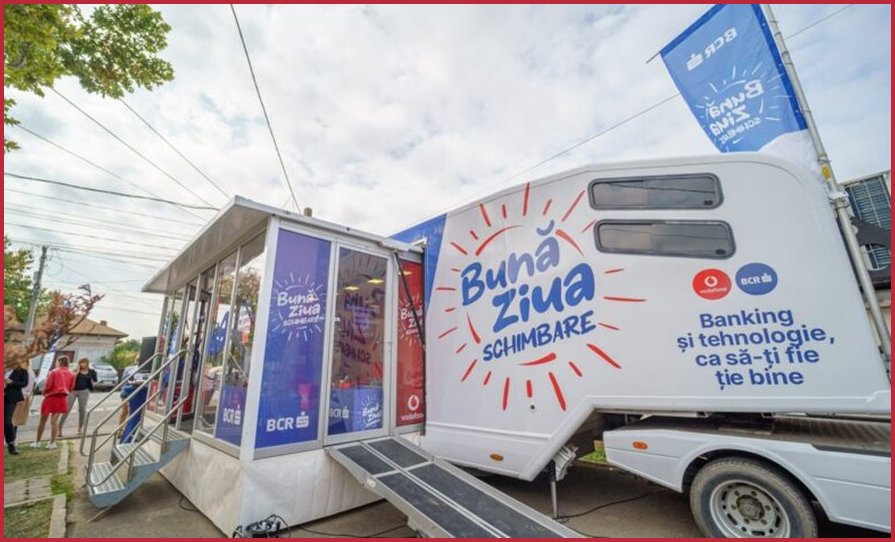
The new mobile unit, a first in the Romanian financial landscape, is organized in a modular truck, with a usable space of 60 square meters, equipped with all the facilities of a modern bank branch: offices, digital services, multifunctional equipment, terrace and all necessary functionalities. The mobile unit has a range of 400 kilometers and can operate independently of any power source for about 3 hours.Since the program’s launch in October 2022, BCR’s first mobile unit has traveled more than 11,000 kilometers, visited 26 locations and supported financial education workshops for 3,500 participants.
Agri & Water Sector
DRN targets all sectors of the business community
After all, if one considers the preconditions of the agricultural sector, one will have to consider the related water sector as well, and the following message from the field is a good example.
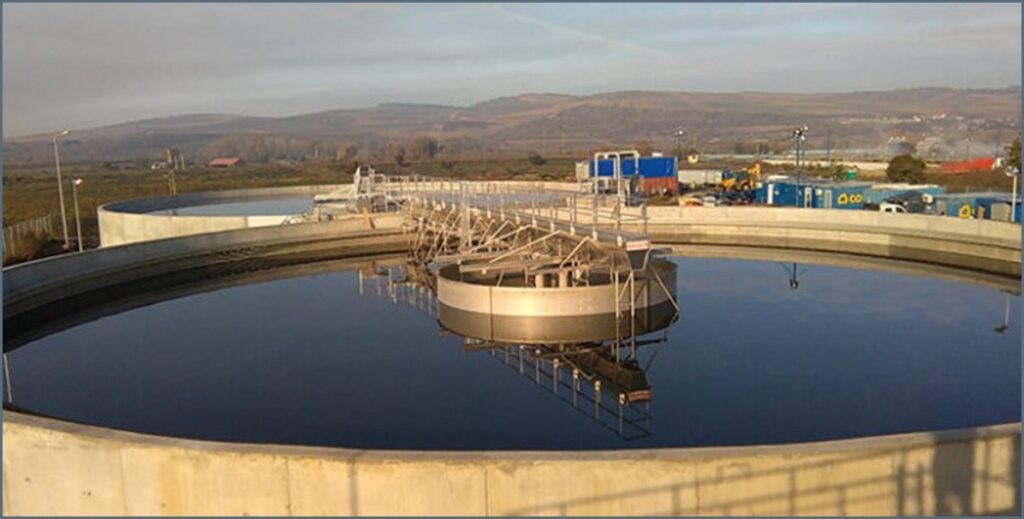
About irrigation
Adrian Petcu, founder of Terraview Romania, a supplier of irrigation systems:
“Farmers have understood that the road in agriculture is one-way and that if you don’t irrigate, you have no hope!
We as Terraview have 3 projects in progress and 10-12 discussions on others.” Our company has installed irrigation systems on a total area of over 10,000 acres.
♦ There is currently talk of developing new projects of 200 to 3,000 acres each.
♦ Costs vary depending on the type of system, from €1,000/hectare to €5,000/hectare.
♦ There are projects that pay for themselves in 2-3 years, as well as those that pay for themselves in 5-7 years.
♦ In Romania, as well as in the company’s portfolio, the irrigation market is dominated by rotary systems, with a 70-80% share.
It is a myth that farmers look for irrigation solutions during drought or heat, and that when it rains or snows they forget about the problem and set other priorities. Today, more and more farmers, regardless of their size (small, medium or large), see irrigation as a medium- and long-term investment and include it in their annual budget, said Adrian Petcu.
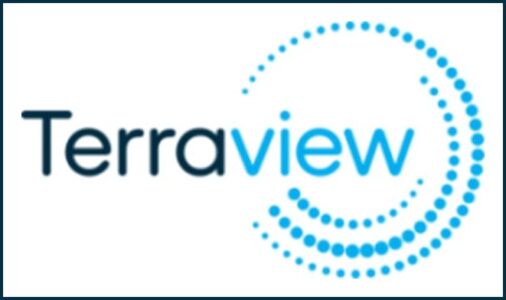 “In recent years, we have seen a decrease in this trend (investing in irrigation systems at critical times, ed.), because we work primarily with large farms that have a very well-developed development plan and follow it closely. But even smaller and medium-sized farmers have understood that the road to agriculture is a one-way street and that if you don’t irrigate, there is nothing to hope for! The standard five-year farming cycles we knew – one bad year, one very good year and average years – no longer exist. “There were also three bad agricultural years in a row. Even though farmers still see snow or rain, they know that the weather can get worse and therefore try to implement irrigation solutions in advance,” Adrian Petcu said.
“In recent years, we have seen a decrease in this trend (investing in irrigation systems at critical times, ed.), because we work primarily with large farms that have a very well-developed development plan and follow it closely. But even smaller and medium-sized farmers have understood that the road to agriculture is a one-way street and that if you don’t irrigate, there is nothing to hope for! The standard five-year farming cycles we knew – one bad year, one very good year and average years – no longer exist. “There were also three bad agricultural years in a row. Even though farmers still see snow or rain, they know that the weather can get worse and therefore try to implement irrigation solutions in advance,” Adrian Petcu said.
Additional issues that the Romanian government is responsible for are the massive illegal deforestation (leads to desertification) and the limited oversight of it by Romsilva(the equivalent of the Dutch Forestry Commission) and of course then the Romanian water sector comes into the picture. Now that the “stoppers” in the Netherlands are in sight and in action, people are looking across the border for opportunities to continue their business elsewhere and Romania certainly comes into consideration. Last but not least, the Netherlands has a maritime climate and Romania has a continental climate.
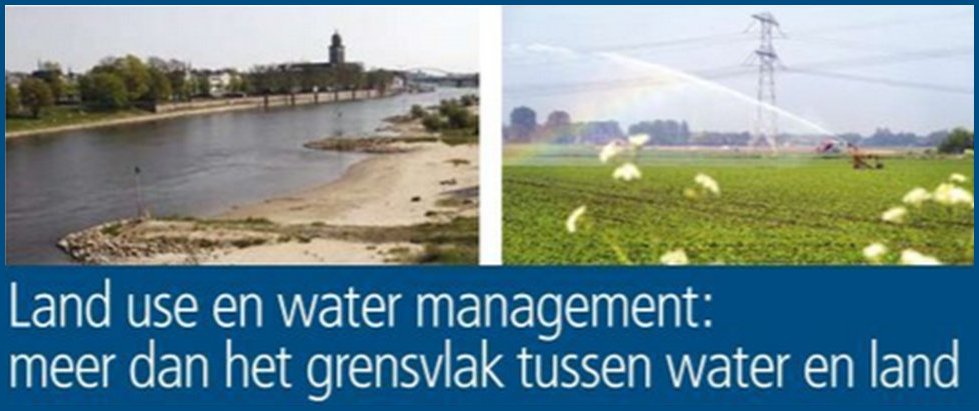
DN Agrar appeal to Dutch and Romanian governments
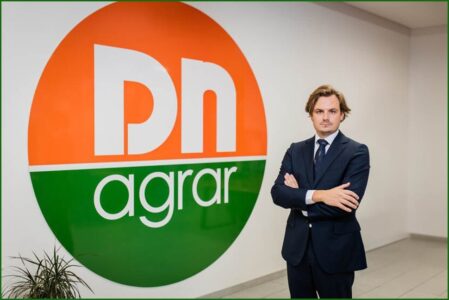
Photo: DN Argar made available to DRN
When asked Peter de Boer of DN Agrar: What do you think are the main opportunities and challenges for the Netherlands and Romania and their cooperation His answer is:
“Both countries have unique opportunities and face challenges in circularity, food security and manure management. Romania can benefit from Dutch expertise in creating value-added products from manure, such as organic fertilizers and biogas. This would improve soil health and reduce dependence on synthetic fertilizers, thus improving the long-term sustainability of agriculture. I believe the main opportunity for cooperation lies in knowledge exchange and technology transfer. The Netherlands has advanced expertise in manure processing technologies. Sharing knowledge with Romania can help develop local capacity for responsible manure management and create a more circular agricultural system.’ ‘This could include joint research projects, training programs for farmers and agricultural professionals and the development of tailored solutions adapted to the Romanian context. For cooperation to be successful, both governments must work together and create a supportive regulatory framework that encourages innovation and investment in sustainable agricultural practices. By focusing on these key areas, the Netherlands and Romania can create a mutually beneficial partnership that contributes to a more circular and food-safe future. What is a possible role or opportunity for your company in this context? And how can we cooperate in this? ‘DN AGRAR, as the largest integrated zootechnical farm in Romania, is well positioned to improve the sustainability of its operations. Our vertical integration allows us to focus on responsible land management, animal welfare and resource efficiency. We strive to be a leader in sustainable dairy farming.
In consultation with all stakeholders, the DRN may initiate in the form of a trade mission where governments are also represented by agriculture and or trade councils and or responsible state secretaries.
Photo: DN Argar made available to DRN
The future of Agri Food Production
The Consulate of the Kingdom of the Netherlands honorary consil in Iași, in cooperation with the Embassy of the Kingdom of the Netherlands in Romania and den the University of Life Sciences “Ion Ionescu de la Brad” in Iași (USV Iași), have the honor to organize the second edition of the international conference “The Future of Agri-Food Production – Dutch-Romanian climate-smart agricultural solutions” and to invite you to attend. This conference aims to present smart agricultural solutions based on best practice models from the Netherlands and Romania.
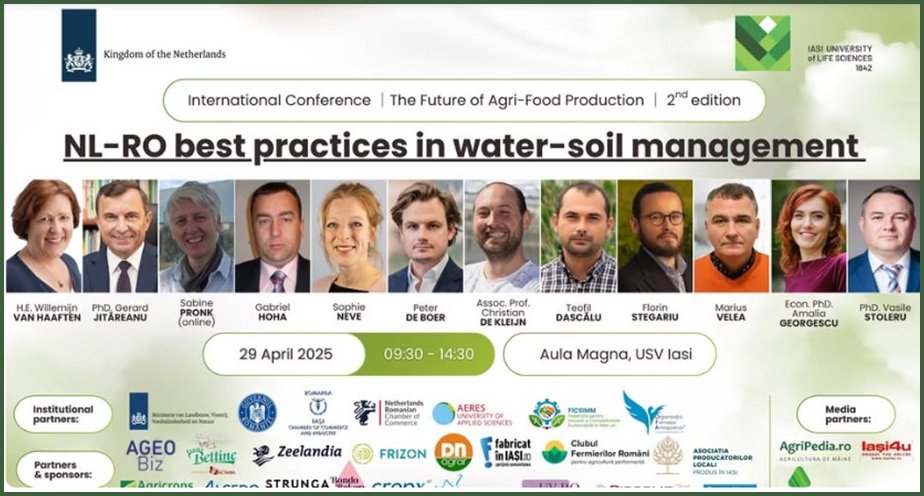
The event will take place on Tuesday, April 29, 2025, from 9:30 a.m., at the Aula Magna of the University of Life Sciences of Iași and will bring together national and Dutch experts, agricultural entrepreneurs, farmers and higher education representatives to discuss the future of agri-food production.
The Organization of Women Entrepreneurs is one of the main partners of this event, thanks to the presence as host and co-organizer of our colleague Amalia Georgescu, first vice president of OFA. Also honorary consul of the Netherlands in Romania.
The agriculture and agri-food sector has faced several challenges of a climatic and geopolitical nature in recent years. Global food and energy crises, dwindling drinking water supplies, pollution and biodiversity loss require the implementation of concrete measures to mitigate them and strengthen the resilience of the agri-food sector. To combat and adapt to climate change, we must devise and implement smart agricultural solutions.
In this context, together with our distinguished guests, we discuss new solutions adapted to water and soil management and successful projects from the academic and economic world. We present different models of good practice for sustainable and resilient agriculture, the latest technologies for soil and crop management, and the achievements of successful entrepreneurs in the agriculture and agri-food sectors.
Among the speakers and special guests who will join us are:
- E. Willemijn van Haaften, Ambassador of the Kingdom of the Netherlands in Romania
- Sophie Neve, agricultural advisor, Embassy of the Kingdom of the Netherlands in Romania
- Professor University Dr. Gerard Jităreanu, rector of the “Ion Ionescu de la Brad” University of Life Sciences of Iaşi (USV)
- Amalia Georgescu, entrepreneur, Honorary Consul of the Netherlands in Iaşi – Christian de Kleijn, specialist researcher Aeres Hogeschool, the Netherlands
- engineer Adrian Iurcan, CEO BIOCOMP Romania
- Other guests and guest speakers from the Netherlands and Romania, both from the public and private sectors, will be confirmed soon.

With this conference, we want to create a unique opportunity for dialogue and exchange of experiences and ideas. Thus, we contribute to the formation of a strategic vision for the future of agri-food production in Romania and offer practical solutions that can be useful for policy in this area.
IT Sector
Revolution in technology: Romania gets first quantum innovation center in Iași, in partnership with IBM
The first IBM Quantum Innovation Center in Romania, FreeYa Mind, will be located in Iași and train professionals who can harness the potential of quantum technology in many areas, from complex simulations in medical research to cryptography and advanced algorithms for artificial intelligence, AGERPRES writes.
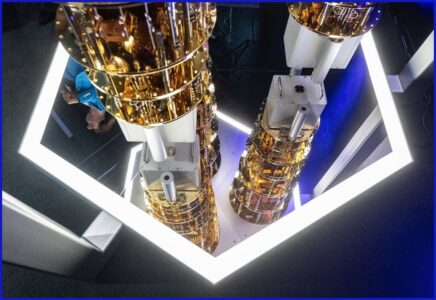 This unique campus in Romania, the second in Europe, has a modern vision focused on education, research and entrepreneurship. This center, expected to be completed in 2026, will host courses and workshops on quantum technology, open to students and professionals from different fields.
This unique campus in Romania, the second in Europe, has a modern vision focused on education, research and entrepreneurship. This center, expected to be completed in 2026, will host courses and workshops on quantum technology, open to students and professionals from different fields.
The IBM Quantum Innovation Center, FreeYa Mind, will have access to IBM’s quantum computing resources via the cloud and can offer member organizations access to IBM’s latest quantum systems and resources, including training and support for their users.
”The FreeYa Mind campus can be described as an ambitious project. We see it as an ecosystem to be considered from three perspectives: education, research and innovation and entrepreneurship. As early as February, we can benefit from this quantum revolution and the extraordinary power of a quantum computer here in Iași. Last week I had my first class and to my surprise the room was full of students, master’s students, PhD students and professors. Everyone was enjoying the first live course with access to the quantum resource. “We want to expand nationally the partnerships we have already established with the five universities in Iași,” Cornel Scripcă, co-founder of FreeYa Mind Campus, said at Wednesday’s launch event.
 The center will house advanced research centers in quantum computing, physics and engineering, supported by a high-performance underground data center that provides computing and security resources for advanced quantum and AI technologies.
The center will house advanced research centers in quantum computing, physics and engineering, supported by a high-performance underground data center that provides computing and security resources for advanced quantum and AI technologies.
Quantum technology is redefining the frontiers of knowledge and revolutionizing the way we tackle the world’s biggest challenges. The ability to perform certain calculations exponentially faster than classical computers opens up new possibilities for industry, education and research.
”This project is unique in Romania. This collaboration with the FreeYa Mind Campus supports the development of an advanced multidisciplinary scientific center in Iași. ”Thanks to access to IBM’s quantum technologies and resources, students and researchers can collaborate in a dynamic, future-oriented environment and explore solutions to real challenges,” Cerasela Băiculescu, Country General Manager of IBM Romania and Moldova, told the press.
Aviation sector:focus on Moldova
Major upgrade flight connections with Moldova.(Also with the Netherlands)
Wizz Air Wizzair assigns third plane to Chisinau airport and plans six new routes from October
Airline Wizz Air announces the development of its network from Chisinau for the 2025 winter season. In October, the company will deploy its third aircraft and introduce six new routes. This expansion will sell over 393,000 additional seats to and from the Republic of Moldova. Tickets are already available now on wizzair.com or via the airline’s mobile app, with fares starting at €19.99.
 Prices are for a single flight segment, including handling and other non-optional charges. One piece of carry-on baggage is included (max: 40x30x20 cm). Additional fees are charged for the trolley and each piece of checked baggage. The price applies only for bookings via wizzair.com and the WIZZ mobile app.
Prices are for a single flight segment, including handling and other non-optional charges. One piece of carry-on baggage is included (max: 40x30x20 cm). Additional fees are charged for the trolley and each piece of checked baggage. The price applies only for bookings via wizzair.com and the WIZZ mobile app.
The addition of the new Airbus A320 aircraft to the airline’s Moldovan fleet on Oct. 26, 2025 marks another important step for Wizz Air’s local operations. Starting today, passengers can purchase tickets for six new direct flights from Chisinau to Milan-Bergamo, Karlsruhe/Baden-Baden, Billund, Bari and Athens.
Chisinau will also get a direct connection to Maastricht, Netherlands. This will be a new destination in the entire Wizz Air network. Five new routes will operate three times a week, while the Milan-Bergamo connection will operate four times a week. Flights to Milan-Bergamo will begin on Oct. 26, 2025, to Karlsruhe/Baden Baden and Billund on Oct. 27, and to Bari, Athens and Maastricht on Oct. 28.
 The allocation of the new aircraft will allow the company to improve its connectivity by increasing flight frequencies on two existing routes from Chisinau to Paris Beauvais and Berlin. With the addition of the third aircraft to the base, Wizz Air will offer passengers direct connections to 27 destinations in 15 countries during the winter, including popular routes such as Abu Dhabi, Berlin, Brussels Charleroi, Vienna, Rome, London Luton and Warsaw.Wizz Air is committed to providing excellent service and continuously developing its network to meet the needs of its customers. Wizz Air is also actively looking for new cabin and flight crew members in the Republic of Moldova and plans to hire new colleagues at the base. The next recruitment day will take place on April 15.
The allocation of the new aircraft will allow the company to improve its connectivity by increasing flight frequencies on two existing routes from Chisinau to Paris Beauvais and Berlin. With the addition of the third aircraft to the base, Wizz Air will offer passengers direct connections to 27 destinations in 15 countries during the winter, including popular routes such as Abu Dhabi, Berlin, Brussels Charleroi, Vienna, Rome, London Luton and Warsaw.Wizz Air is committed to providing excellent service and continuously developing its network to meet the needs of its customers. Wizz Air is also actively looking for new cabin and flight crew members in the Republic of Moldova and plans to hire new colleagues at the base. The next recruitment day will take place on April 15.
“I am proud that Wizz Air is growing so rapidly in Moldova, with a third aircraft and dozens of new destinations in just six months. The new aircraft announced today will bring an additional 393,000 seats a year for passengers traveling to and from Chisinau. I am especially pleased to announce the route to Maastricht, a unique destination in the Wizz Air network. The airline continues to invest in its growth in Moldova, offering more and more affordable travel options, jobs for pilots and cabin crew in Moldova. Wizz Air strongly believes in the value of travel as a unique experience and will continue to work to ensure that all passengers have more opportunities to explore the world,” said Andras Rado, head of communications at Wizz Air.
“We are delighted to strengthen our strategic partnership with Wizz Air by allocating a third aircraft to its base in Chisinau. This decision reflects Wizz Air’s strong confidence in the potential of our airport and allows us to expand our direct route network, connecting Chisinau to even more European destinations. Expanding flight routes and increasing frequencies bring tangible benefits to our passengers – more accessible and convenient travel options, whether for vacations, family visits or business trips – while boosting the local economy. We look to the future with optimism and confidence, as this new phase of development transforms Chisinau International Airport into a modern and efficient connection point, bringing long-term benefits to our passengers and our community,” said Sergiu Spoială, acting director of Chisinau International Airport.
Political Developments in Moldova
Moldova opens its doors to the West
With its IT specialists and fertile farmland, the country is trying to entice Dutch companies. Russian influence, the war in Ukraine and corruption remain risks that entrepreneurs must consider.
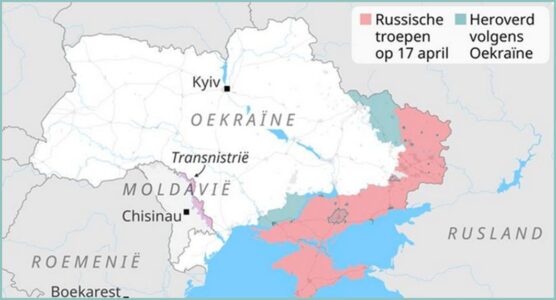
Moldova is breaking away from Russia’s sphere of influence and moving toward European integration.
The country offers low tax rates and fertile land, while the pro-European government tries to fight corruption.
Despite Russian interference and the war in neighboring Ukraine, entrepreneurs see opportunities in IT outsourcing and agricultural production.
In 2008, entrepreneur Sander Geels was diligently searching for IT talent. In the Netherlands, the search did not progress at all. So when an acquaintance offered to visit his programming department in Moldova, he and his partner seized the opportunity with both hands.
It turned out to be a hit. ‘In no time we had three rock-solid software developers on staff,’ he recalls seventeen years later. ‘The salaries were a lot lower, so we didn’t run much risk either.’ The entrepreneur hasn’t left. He still sees “enormous” opportunities for Dutch companies in the Eastern European country.
For a long time, Moldova, sandwiched by Romania and Ukraine, chose a neutral course between Moscow and the West. In recent years, reinforced by the invasion of Ukraine, Chisinau is turning emphatically toward the West. The country hopes to join the European Union by 2030. But before that, it must first reform its rule of law and eliminate corruption. Last year, it scored
it 43 points on Transparency International’s annual corruption index, where 100 points means little corruption (the Netherlands stands at a score of 78).
Getting rid of Russian gas
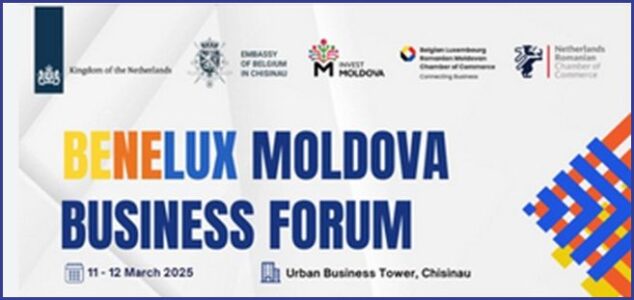 Russia does not thank Moldova for this European spin. It has been punished several times with boycotts by the country with which it was in the Soviet Union until 1991. When Moldova backed Kiev after the 2022 invasion of Ukraine, the Kremlin turned off the gas tap. The country then had to rapidly move away from Russian fuel. This came at a high price: the economy shrank some 5% that year. On top of that, the country was also ravaged by the corona pandemic in recent years and had to take in large numbers of Ukrainian refugees. With support from the European Union, Moldova is trying to get its economy back on track. In the coming years, the country can look forward to a €1.9 billion support program. Moldova is also opening its doors to Western investors. Dutch companies are very welcome because of its “high technology, agriculture and pharmaceutical industry,” Prime Minister Dorin Recean told the FD earlier.
Russia does not thank Moldova for this European spin. It has been punished several times with boycotts by the country with which it was in the Soviet Union until 1991. When Moldova backed Kiev after the 2022 invasion of Ukraine, the Kremlin turned off the gas tap. The country then had to rapidly move away from Russian fuel. This came at a high price: the economy shrank some 5% that year. On top of that, the country was also ravaged by the corona pandemic in recent years and had to take in large numbers of Ukrainian refugees. With support from the European Union, Moldova is trying to get its economy back on track. In the coming years, the country can look forward to a €1.9 billion support program. Moldova is also opening its doors to Western investors. Dutch companies are very welcome because of its “high technology, agriculture and pharmaceutical industry,” Prime Minister Dorin Recean told the FD earlier.
Does the Eastern European country offer opportunities for Dutch companies? With that question in mind, a number of CEOs headed to the capital Chisinau for the Moldova Benelux Business Forum earlier this month. Two days of presentations and company visits to entice Dutch entrepreneurs to establish business relations in Moldova.
Looking for programmers
“Moldova sounds promising so far,” said IT entrepreneur Sander van Dongen during the coffee break at the meeting. For his company, Itum, he is looking for opportunities to outsource IT tasks. At first, he worked with Ukrainian programmers, but the war complicated that. Outsourcing tasks to India, which he also tried, was difficult because of cultural differences. He is interested in cooperating with Moldova. We start carefully. We send an assignment first and see how it works out.’
Van Dongen has traveled to the right country, Geels thinks. His company, Backstage-IT, matches Moldovan programmers with Dutch companies. He points out that there are hardly any IT professionals to be found in the Netherlands. ‘Large companies almost have to outsource programming tasks abroad,’ he says. ‘In Moldova it is relatively easy to find a good programmer for a reasonable salary.’ In addition, the country is a lot easier to reach, compared to other outsourcing locations, such as India.
To stimulate the IT industry at home, Chisinau offers generous tax benefits. Entrepreneurs pay only 7% sales tax; employees do not have to pay any tax at all on their income. ‘Exceptional rates,’ says Van Dongen. ‘I haven’t seen it that advantageous anywhere.’ So generous, in fact, that within the EU it would be seen as unfair competition, according to the entrepreneur.
Received with open arms
Geels, who has lived partly in Chisinau since 2008, has watched the country grow toward Europe in recent years. ‘During my early days, payments took forever, arranging something with the government was always difficult,’ he says. He also heard many rumors of bribes. ‘Companies are now welcomed with open arms. Bureaucratic procedures, such as opening a business, are easily arranged.’
”If you are 20 and you want to become a farmer, you should definitely consider going to Moldova”
Henk de Lange, agricultural consultant
Much of his work involves bridging cultural differences. A legacy of communism is that many Moldovans are used to hierarchical organizations in which showing initiative is not rewarded. Young people quickly find their feet in more horizontal structures, Geels observes. If he noticed that something was bothering his team members, he sometimes took them to a pub at two in the afternoon. ‘The first half-hour is a bit awkward then, but after that the tongues loosen,’ he says. ‘Once they find that they are allowed to disagree with their supervisor, most of them find that heartening.’
Fertile soil
In addition to IT specialists, Moldova also has particularly fertile soil. Henk de Lange, who has been working in the Eastern European country as an agricultural consultant since 2019, is particularly enthusiastic about the taste of Moldovan fruit. He says the combination of cool nights but sunny days in August and September gives high sugar content and flavor.
‘If you are 20 and you want to become a farmer, you should definitely consider going to Moldova,’ he says. The consultant points out that there is a lot of agricultural knowledge in the Netherlands. And along with Ukraine, he says the country has the most fertile soil in Europe. ‘It was not for nothing the food barn for the entire Soviet Union.’ Now is the right time to go to Moldova, he argues. In coming years, around EU accession, land prices will rise substantially, he expects. ‘That also happened when Romania and Bulgaria became EU members.’
Much Moldovan wine, fruits and vegetables traditionally went to Russia. But because of Russian boycotts, the Eastern European country now has to get rid of its harvest in Europe. In 2018, for example, the country exported some 70% of its apricots, cherries, peaches and plums to Russia. Five years later, in 2023, this was only about 18%. Much of that now finds its way to the EU.
Russian interference
As Moldovan farmers move into the European market, Moscow floods the Eastern European country with pro-Russian disinformation and propaganda. It is far from certain whether the pro-European government will regain a majority in the fall elections. There is also a bloody war going on in neighboring Ukraine. Many analysts expect that if Russia succeeds in conquering Ukraine, Moldova will be next. Is this a reason not to embark on a business adventure in Moldova?
In 2022, after the invasion of Ukraine, it was exciting, acknowledges IT entrepreneur Geels. ‘It brings risks, you have to be aware of that. After the invasion, for example, we had to quickly open an office in neighboring Romania. However, the entrepreneur does point out that outsourcing IT tasks requires little investment. After all, you don’t have to build a factory. About Russian influences in Moldova itself, he worries little. ‘A pro-European course is obviously better for the country, but even a Kremlin-affiliated government ultimately benefits from a well-functioning economy.’
About a Russian invasion, agricultural consultant De Lange is not worried. In his view, the war is relatively far away. He is more worried about the pro-Russian parties in parliament. ‘Many Russia-linked oligarchs have a lot of influence over the legal system, and that poses a risk if you invest a lot of money in a farm.’ After all, if you get into legal trouble, you’re not sure if justice will prevail. But, he stresses, Moldova is making great strides in fighting corruption. ‘When I arrived here, with enough money you could win any court case. That’s really different now.’
(SOURCE:Reprinted with permission from the Financieel Dagblad)
Co Economic developments Romania compared to EU countries
Romania’s economic growth in the fourth quarter of 2024 is double the EU average
Romania’s economic growth in the fourth quarter of 2024 is double the EU average
Eurozone and European Union economies showed slight growth in the fourth quarter of 2024 compared to the third quarter, but Romania’s economy grew twice as fast as the EU average, according to revised data recently published by Eurostat.
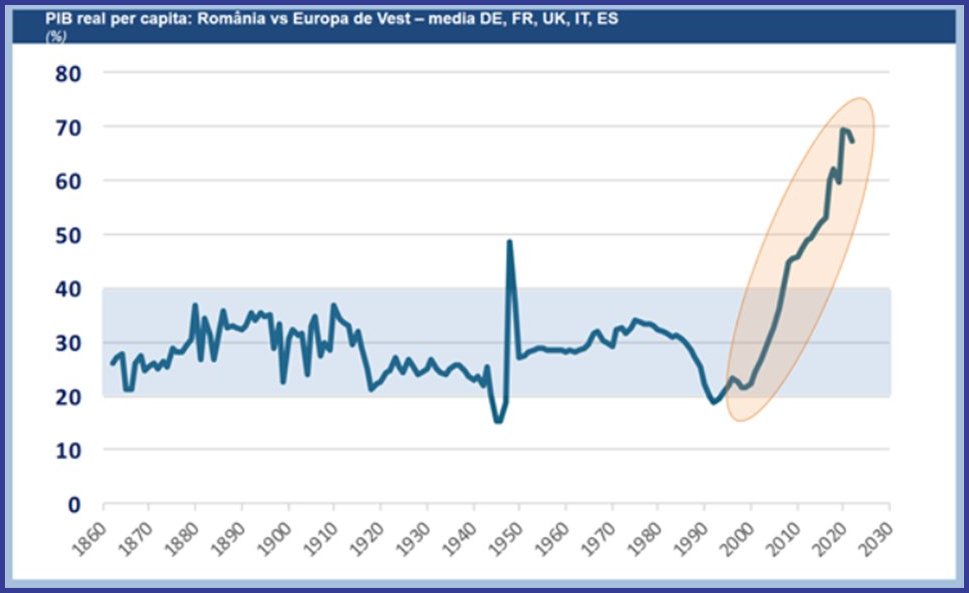
According to this data, the gross domestic product of the 20 countries that have adopted the euro increased 0.2% in the October-December 2024 period compared to the previous quarter, while Eurostat had initially announced an increase of 0.1%. The European agency also revised its data on the European Union. The European Union economy showed a 0.4% growth in the fourth quarter compared to the previous quarter. That is double the 0.2% growth initially announced.
Among member states, the strongest GDP growth rates were recorded in Ireland (3.6%), Denmark (1.6%) and Portugal (1.5%).
As for Romania, data from Eurostat show that gross domestic product increased 0.8% in the fourth quarter of 2024 compared to the previous quarter. This is after Romania’s GDP increased 0.1% in the third quarter compared to the second quarter.
In contrast, Romania’s economic performance, year-on-year, in the fourth quarter of 2024 compared to the fourth quarter of 2023, an increase of 0.7%, is lower than that of the Eurozone (1.2%) and EU (1.4%) economies.
Over all 2024, gross domestic product rose 0.9% in the euro area and 1% in the EU, after rising 0.4% in both zones in 2023.
Eurostat on Friday published figures on the evolution of the employment rate in the fourth quarter. According to these data, the number of employed people increased by 0.1% in the euro area in the fourth quarter and by 0.2% in the European Union, compared to the previous quarter. Romania was the country with the strongest increase in the employment rate from quarter to quarter, with a 2% increase.
Eurostat estimates that 219.7 million people were employed in the European Union in the last quarter of last year, of which 171.2 million were in the euro zone.
In the case of Romania, figures published earlier by the National Institute of Statistics show that the Romanian economy grew by 0.9% last year and gross domestic product (GDP) increased by 0.7% in the last quarter of 2024 compared to the same quarter in 2023 and by 0.8% compared to the previous quarter.
Gross domestic product (based on seasonally adjusted data) for the fourth quarter of 2024 was estimated at 453.833 billion lei at current prices. In real terms, this represents a 0.8% increase from the third quarter of 2024 and a 0.7% increase from the fourth quarter of 2023.
Based on the gross series, estimated gross domestic product for the fourth quarter of 2024 was 523.709 billion lei at current prices, an increase – in real terms – of 0.7% compared to the fourth quarter of 2023.
Estimated gross domestic product for 2024 was 1,766 billion lei at current prices, a real increase of 0.9% over 2023.
The following sectors contributed positively to GDP growth in 2024 compared to 2023: wholesale and retail trade; repair of motor vehicles and motorcycles; transportation and warehousing; hotels and restaurants (+0.4%), with a 20.7% share of GDP formation and whose volume of activity increased by 2.1%; public administration and defense; social insurance in the public system; education health care and social assistance (+0.1%), with a 12.8% share in GDP formation and whose volume of activities increased by 0.6%; entertainment, cultural and recreational activities; repair of household products and other services (+0.2%), with a 3.1% share in GDP formation and whose volume of activities increased by 6.8%.
Negative contributions to the change in GDP were made by agriculture (-0.4%), with a 3.2% share of GDP formation and whose volume of activity fell by 10.5%, construction (-0.2%), with a 7.5% share of GDP formation and whose volume of activity fell by 2.4%, and real estate transactions (-0.1%), with a 7.2% share of GDP formation and whose volume of activity fell by 1.3%.
Manufacturing, information and communication, financial intermediation and insurance, as well as professional, scientific and technical activities did not contribute to the change in GDP; administrative service activities and support service activities, as specified by the INS.
Fiscal Sector
Wave of changes from a VAT perspective. What are the main changes and when do they take effect?
Raising the ceiling above which small businesses are exempt from VAT
The draft decision proposes to increase the ceiling applicable to the special exemption scheme for small businesses in Romania from 300,000 lei to 395,000 lei .
This change requires taxpayers with an annual turnover exceeding the 395,000 lei ceiling to apply for VAT registration no later than the date on which the ceiling is exceeded. From that date, the new tax system will take effect.
The draft also includes a set of transitional provisions under which taxpayers who have registered for VAT purposes this year, as a result of exceeding the 300,000 lei ceiling, may request to be removed from the records of persons registered for VAT purposes from April 1, 2025, subject to certain conditions (as the ceiling is increased to 395,000 lei).
In this regard, it is important to note that small businesses that are not registered for VAT purposes do not collect this tax on the supplies of goods/services they provide, but they also cannot deduct VAT on purchases.
Reciprocity in application of VAT exemption for small businesses in Romania and other EU countries
The future regulation allows persons established in Romania to apply the scheme for small enterprises in other European Union (EU) member states, but also for persons established in other member states to apply this special exemption scheme for small enterprises in Romania. The provisions are valid if certain conditions are met, taking into account two thresholds: an annual turnover at EU level of no more than €100,000; the exemption ceiling applicable in the Member State where the operation takes place.
These amendments are aimed at transposing into Romanian legislation the European provisions regarding the application of the special scheme for small businesses, as laid down in EU Directive 285/2020 (amending the VAT Directive) and in the EU Regulation on Administrative Cooperation and Exchange of Information, in order to monitor the correct application of the special scheme for small businesses.
Determining the place of taxation of certain services
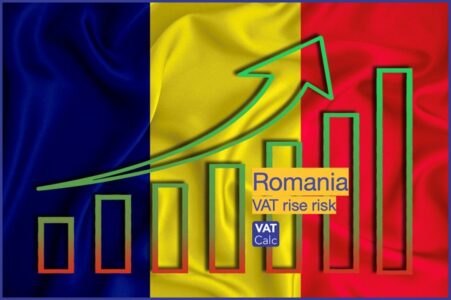 The draft from the Ministry of Finance also proposes to amend the rules regulating the place of supply for activities/events involving virtual presence, broadcast over the Internet or made available by any other virtual means (services relating to the provision of access to events; main and auxiliary services relating to cultural, artistic, sporting, scientific, educational, entertainment or similar activities). The purpose of this amendment is to allow taxation in the Member State of consumption, so that services supplied electronically to a customer are taxable at the place where the customer (natural/legal person) is established, has his permanent address or his usual residence. At the same time, it is proposed that these transactions will not be eligible for reduced VAT rates.
The draft from the Ministry of Finance also proposes to amend the rules regulating the place of supply for activities/events involving virtual presence, broadcast over the Internet or made available by any other virtual means (services relating to the provision of access to events; main and auxiliary services relating to cultural, artistic, sporting, scientific, educational, entertainment or similar activities). The purpose of this amendment is to allow taxation in the Member State of consumption, so that services supplied electronically to a customer are taxable at the place where the customer (natural/legal person) is established, has his permanent address or his usual residence. At the same time, it is proposed that these transactions will not be eligible for reduced VAT rates.
Abolition of VAT exemptions for certain goods and services intended for non-profit organizations. The above document also proposes to abolish VAT exemptions for the supply of construction/renovation/modernization services for hospital departments to nonprofit organizations, as well as for the supply of medical equipment to nonprofit organizations. The measure would also apply to businesses wholly owned by nonprofit organizations.
The tax authorities claim that this amendment was proposed in response to a request from the European Commission to the Romanian authorities, upon which Romania undertook to amend the national legislation from March 2025 to bring it into line with the provisions of the VAT Directive. This is to avoid triggering the infringement procedure for incorrect transposition of Community provisions.
In conclusion, the draft published by the Ministry of Finance envisages a series of changes that taxpayers should take into account in the near future, since the implementation period is very short – some of them take effect from the date of publication of the emergency regulation in the Official Gazette, and others from April 1, 2025.
In the long run, taxpayers face new changes from a VAT perspective and from the direction of the European Union, as after years of debate, the EU Council adopted the package ViDA – VAT in the Digital Age, which aims to reform VAT legislation and will be implemented gradually by January 2035. The ViDA reforms will be published in the EU Official Journal in the near future and the directive will then be transposed into the national legislation of the member states.
Special Messages
Economic dimension of upheaval in Romania Pawns in power play during Cold War
Nationalization, compensation, tightening of mutual relations
 “Against the background of an outline of how after World War II the communists in Romania seized power, deposed the king and abolished the democratic system, Dorin Perie, Romanian by birth but living in the Netherlands and a former lecturer at the University of Amsterdam, describes the economic dimension of this upheaval, with the nationalizations of foreign companies as an important element. The author recounts how western countries, including especially the Netherlands, reacted to these nationalizations.”
“Against the background of an outline of how after World War II the communists in Romania seized power, deposed the king and abolished the democratic system, Dorin Perie, Romanian by birth but living in the Netherlands and a former lecturer at the University of Amsterdam, describes the economic dimension of this upheaval, with the nationalizations of foreign companies as an important element. The author recounts how western countries, including especially the Netherlands, reacted to these nationalizations.”
With his historical reconstruction of Romanian-Dutch economic relations after World War II, Dorin Perie demonstrates, in fact, how vulnerable a constitutional state is to being overwhelmed in a short period of time by a fundamentally different political system, while it can take decades before violations of the democratic rule of law as we know it, with respect for other people’s property and other fundamental rights, among other things, are (somewhat) corrected again. This is a lesson that, given the current world situation, has lost none of its relevance.”
“Pieter Jan Wolthers, formerly Dutch ambassador to Romania (2000-2005).”
(Note The book was also published in the Romanian language)
Startups in Romania by trial and error and keep going!
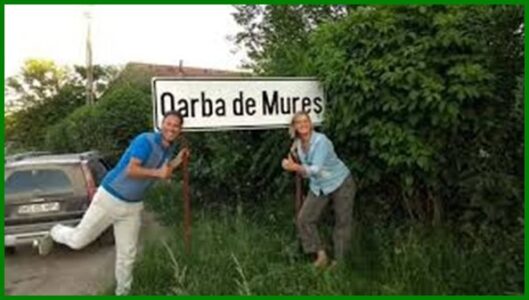 In the current period when many farmers (the stoppers) who want to continue their business elsewhere also and do see the name Romania passing by. Of course it depends on the mainstream media. However, when one hears the name of their former colleague Janneke Vos, a look of recognition follows and also of curiosity. Because if you couple the keywords goats, writer of books and making double basses with that, one gets lost on the trail and soon her website www.jannekevos.nl becomes visible. Now, not every young farmer will be able to imagine such a thing immediately but will be able to ask the necessary questions and especially how they picked up the thread after a disappointment. After all, you have more to gain from experience than a mountain of paper.
In the current period when many farmers (the stoppers) who want to continue their business elsewhere also and do see the name Romania passing by. Of course it depends on the mainstream media. However, when one hears the name of their former colleague Janneke Vos, a look of recognition follows and also of curiosity. Because if you couple the keywords goats, writer of books and making double basses with that, one gets lost on the trail and soon her website www.jannekevos.nl becomes visible. Now, not every young farmer will be able to imagine such a thing immediately but will be able to ask the necessary questions and especially how they picked up the thread after a disappointment. After all, you have more to gain from experience than a mountain of paper.
We as DRN have already more or less agreed with Janneke that she would like to share her experiences with you at a yet to be organized network meeting. So you’ll be hearing from us!
Safe the dates!
TransLogistica 14-16 2025 october in Bucharest
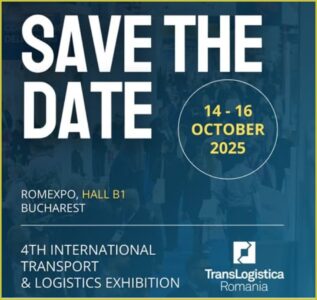 The use of technology has also increased in the transportation and logistics sector in Romania, a trend that will continue to grow in the coming years. Telematics and fleet tracking systems have become increasingly important to track and optimize the flow of goods and reduce costs.
The use of technology has also increased in the transportation and logistics sector in Romania, a trend that will continue to grow in the coming years. Telematics and fleet tracking systems have become increasingly important to track and optimize the flow of goods and reduce costs.
To cope with these changes and take advantage of growth opportunities in the transportation and logistics sector, companies must be innovative and invest in technology and workforce development. In this sense, the TransLogistica Romania 2025 fair, which will take place from 14 to 16 octoberr at Romexpo, is an important event event for everyone working in this sector. The business opportunities, networking and valuable information that can be obtained at this fair are invaluable for development and growth in these areas. We invite all transport, logistics and IT companies to participate in this edition of the TransLogistica Romania exhibition and take advantage of the benefits offered by this unique event in Romania.For more information, please contact:https://romania.translogistica.eu
INDAGRA is the most important fair for agriculture, horticulture, viticulture and animal husbandry in Romania.
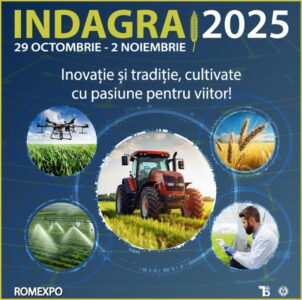 INDAGRA is the most important exhibition for agriculture, horticulture, viticulture and animal husbandry in Romania. The event provides an excellent opportunity to present the latest technologies, equipment and innovative solutions aimed at developing the agricultural sector. At INDAGRA, participants can communicate directly with business partners, promote their products and establish valuable collaborations in a professional environment.
INDAGRA is the most important exhibition for agriculture, horticulture, viticulture and animal husbandry in Romania. The event provides an excellent opportunity to present the latest technologies, equipment and innovative solutions aimed at developing the agricultural sector. At INDAGRA, participants can communicate directly with business partners, promote their products and establish valuable collaborations in a professional environment.
With this important event, ROMEXPO supports progress and innovation in Romanian agriculture and facilitates relevant connections at the national and international level.
For more trade shows and information, please visit: https://romexpo.ro/calendar/targuri-si-expozitii/
Agri sector
Agricover Credit IFN receives $42 million loan from IFC to finance agricultural SMEs
Non-bank financial institution Agricover Credit IFN will receive up to $42 million from the International Finance Corporation (IFC), a member of the World Bank Group, to support SMEs in Romanian agriculture. At least 50% of these funds will be allocated to women-led SMEs, according to an IFC press release sent to Agerpres on Thursday.
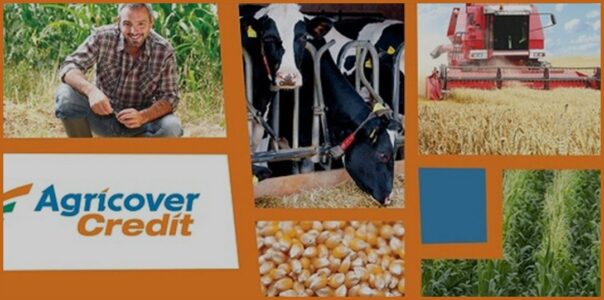
Romanian identity card
The new IDCard, which will serve both as a travel document and a means of identification for administrative purposes.
Starting May 20, authorities will also issue a simpler version of the ID card without an electronic storage component. Romanian state covers cost of new electronic ID cards The new electronic ID card will have a standardized format similar to a bank card, in line with European standards, and will include advanced security measures to prevent forgery and identity theft.

It will also serve as a travel document and provide access to electronic services, including electronic signatures. The printed card will display the holder’s name, nationality, date of birth, gender, facial image, personal numeric code (CNP) and handwritten signature. The electronic version will store additional data, including the names of the holder’s parents, place of residence, two fingerprints and digital certificates for authentication or electronic signatures, MAI(Ministry) explained. Fingerprint data will be deleted from the issuing authority’s database after printing, following the same procedure as for biometric passports. During the initial rollout period from March 2025 to June 2026, the electronic identity card will be provided free of charge, with the cost covered by the National Recovery and Resilience Plan (PNRR
Logistics Sector
Logistics service provider H.Essers and Rail Cargo Austria establish direct rail connection Romania-Turkey
H.Essers and Rail Cargo Austria are joining forces to launch a new direct train connection between Romania and Turkey. H.Essers already has an existing connection between Genk and Curtici, now creating a direct train connection between Genk and Turkey. With the new connection, 9,000 road transports can be replaced, accounting for a CO2 reduction of as much as 90 percent.
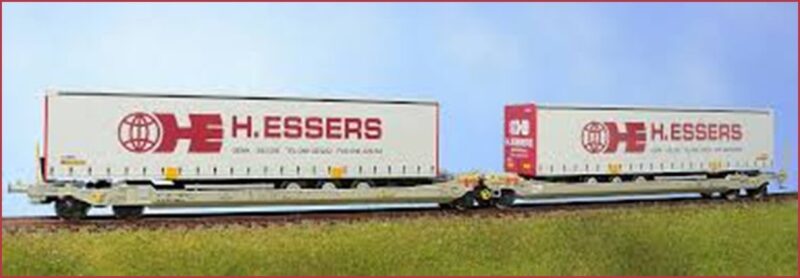
Specifically, a train leaves Genk for Curtici in Romania eight times a week, and then a train from Curtici to Istanbul three times a week. The full lead time from terminal to terminal is therefore less than six days. The rail line can be used for a variety of goods, including dangerous goods. The entire route is supported by H.Essers’ control 2 tower, which allows the route to be monitored from a to z and to intervene in case of temperature problems, for example.
Disclaimer

The newsletter of the Dutch Romanian Network is compiled with great care. The Dutch Romanian Network cannot accept any liability for a possible inaccuracy and/or incompleteness of the information provided herein, nor can any rights be derived from the content of the newsletter. The articles do not necessarily reflect the opinion of the board.
